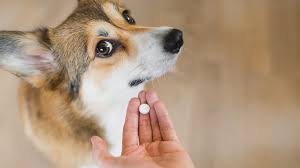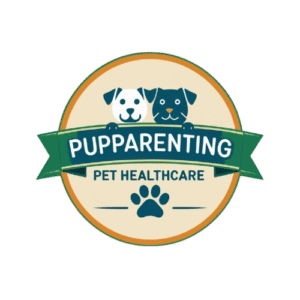When your pet shows tummy troubles or diarrhea, it can feel stressful, but not all disease signs are dangerous. Diarrhea is often a symptom of an intestinal infection caused by parasites, bacteria, or coccidia, or it may result from a sudden change in diet, dietary indiscretion like eating garbage, table scraps, or spoiled food, stress, or an underlying disorder. A healthy pet can sometimes be managed at home using safe remedies, but it’s always best to check with your veterinary health-care team. They can ask questions to determine the cause and whether treatment is required.

Once you get the green light to manage your pet’s diarrhea at home, fasting for 12–24 hours can help the gastrointestinal GI tract rest. After the fast, begin offering small amounts of food with binders to normalize stool consistency. A simple rice and water remedy works well: cook 1 cup of high-quality white rice in 4 cups of water for 30 minutes, strain the grains, save the cooked rice for later, and serve the cooled-off, starchy broth with a splash of unsalted chicken or tuna, making it tempting for your pet.
You can also feed small amounts of plain, cooked rice saved from making the rice water. Try small amounts of canned, pureed pumpkin (avoid pumpkin pie filling) or pet-specific canned pumpkin. It’s high in soluble fiber and can bind the stool. Plain yogurt with active cultures can help pets who tolerate milk products.
Other options include feeding small amounts of plain, boiled potatoes without skin or trying small amounts of plain protein sources like egg, cooked with no butter or oil, or chicken without skin. You can also ask your veterinarian about specially formulated, sensitive-stomach pet foods to help soothe your pet’s tummy. Use probiotics to promote live bacteria that aid digestion, and always offer fresh, clean, water.
If there’s no improvement within four days, call your veterinarian. Further tests or more aggressive treatment may be needed. If stool is primarily blood, take your pet to the veterinarian right away. Avoid dangerous medications like Imodium or human remedies such as Kaopectate and Pepto Bismol unless specifically prescribed, as they can cause toxicity or worsen the tummy troubles.
Over-the-counter human medications should be avoided. In fact, the following can be dangerous for your pet:
When managing dog diarrhea at home, it’s important to remember that some medication meant for humans can do more harm than good. Kaopectate and Pepto Bismol contain an ingredient called bismuth subsalicylate, and if your dog receives a high dose, toxicity can result. Unlike dogs, cats are especially sensitive to salicylates and should never be given these medications. Even small amounts can be harmful, and this is a risk I’ve seen firsthand in veterinary practice.
Imodium works by slowing the gastrointestinal tract, which can seem helpful at first. However, if your pet has eaten something toxic, material that shouldn’t be digested, or a foreign object, or if parasites are present that need to be moved through the system, Imodium can cause even more problems. I’ve noticed pets sometimes get worse when these medications are used without proper guidance.
It’s always safer to avoid these over-the-counter treatments and focus on natural, home-based remedies like rice, plain boiled chicken, or canned pumpkin. These options are gentle on the gastrointestinal tract and help normalize stool consistency without risking toxicity. Offering small amounts gradually helps pets tolerate the food while their system recovers.
If your dog shows severe signs such as blood in the stool or doesn’t improve within four days, call your veterinarian immediately. They can determine if further tests or more aggressive treatment is needed. Avoiding human medication is key, as these substances are not formulated for dogs or cats and can trigger serious toxicity and gastrointestinal problems.
Using my own experience, I always advise pet owners to never take shortcuts with human medications. Even though it may seem like a quick fix, the risks of bismuth subsalicylate and Imodium far outweigh the benefits. Focusing on safe, pet-friendly options ensures a faster, healthier recovery.
What is the best natural remedy for dog diarrhea?
In mild cases of diarrhea in dogs or cats, the safest approach is treated at home by feeding a bland diet such as boiled chicken, low-fat hamburger, or white rice. According to Miller, cooked pasta can also be an option. These foods are easy to digest and give the dog’s GI tract a break, supporting gentle recovery without harsh medications.
How to stop uncontrollable diarrhea in dogs?
To help resolve your pup’s issue of uncontrollable diarrhea, try feeding a bland diet for 24 to 48 hours, starting with plain-cooked, white rice and a little chicken. You can also add canned, plain pumpkin (not pumpkin pie filling) to make your pup’s tummy feel better. Once the pooch feels improved, gradually reintroduce regular food while monitoring their digestion carefully.
.What is an alternative to metronidazole for dogs?
Diagel offers a completely, natural alternative to metronidazole for dogs, with no antibiotic present, and it focuses on improving gut health rather than suppressing it. This can be particularly helpful for dogs dealing with diet changes, water adjustments, environmental factors, or stress, and in my experience, it supports recovery gently without harsh side effects that conventional antibiotics might cause.
What is the best thing to feed a dog with diarrhea and vomiting?
When your dog is experiencing diarrhea and vomiting, the safest approach is feeding small amounts of gentle foods. You can start with boiled chicken and rice, baby food like Gerber first foods, or Hill’s i/d if available at SVAH, or any similar foods that are given to support a sensitive stomach. Begin with a few bites, and if eaten, wait 15 minutes before offering a small amount again. After 1 hour, give a little more as tolerated, monitoring your dog’s response to ensure the gastrointestinal tract handles it well.
Does coconut oil help with diarrhea in dogs?
As a dog owner, it’s tempting to try coconut oil when helping with digestion issues, but in my experience, this can cause upset stomachs or diarrhea rather than relieve it. While fats in coconut oil are sometimes suggested for dogs, it doesn’t always meet your dog’s daily fat requirements, and adding it to their diet can be risky.
The acids in MCTs found in coconut oil don’t have enough omega-6 and omega-3 acids to support proper digestion, and what they contain isn’t processed very efficiently by your dog’s system. Even small amounts can lead to upset stomachs or diarrhea, especially in dogs who are already sensitive or recovering from a gastrointestinal issue.
From my experience, I always recommend using plain, boiled chicken, rice, or canned pumpkin before experimenting with coconut oil. These foods are gentle on the stomach, support digestion, and help normalize stool without introducing fats that can cause additional problems.
Additionally, if your dog has any underlying digestive disorders or a history of sensitive stomach, introducing coconut oil may worsen diarrhea rather than improve it. It’s always better to start small, monitor your dog, and see how their stomach responds to safe, proven remedies.
I’ve found that while coconut oil is marketed as a natural aid, in reality it rarely helps dogs with diarrhea and can even cause more upset stomachs. Focusing on balanced, easy-to-digest foods ensures safer, more reliable recovery.

Pingback: Why Do Dogs Sleep with Their Bums Facing You?
Thanks for your post. I would really like to write my opinion that the cost of car insurance varies widely from one plan to another, due to the fact there are so many different issues which give rise to the overall cost. Such as, the model and make of the car or truck will have a massive bearing on the fee. A reliable ancient family automobile will have a less expensive premium than just a flashy fancy car.
very nice post, i definitely love this web site, carry on it